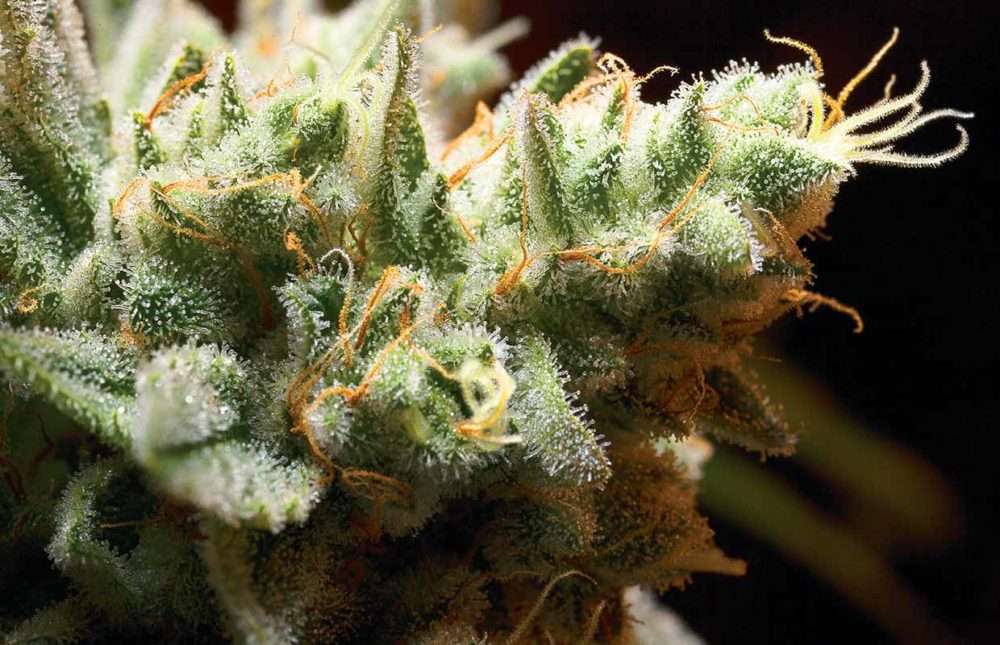
Legal
Why LA’s Legal Cannabis Market Is Still Delayed
Los Angeles is a central hub of California cannabis commerce and culture — the single largest cannabis market in the state. But when it comes to licensing retailers, cultivators and other cannabis businesses, the City of Angels is having a devil of a time.
With nearly 4 million people who call it home, Los Angeles is the most populous city in California. It’s also home to a winding maze of overlapping cannabis laws and ordinances that now includes the state level emergency regulations.
In March 2017, the city’s voters approved Proposition M, and in doing so gave their mayor and city council complete oversight over cannabis regulation. It hasn’t gone that well so far: as of Jan. 11, not one retail outlet has been licensed for adult use sales in Los Angeles.
From NBC News:
While Californians voted in November 2016 to legalize marijuana sales to adults over 21, the Los Angeles City Council did not approve ground rules for operating within city limits until Dec. 6. The city’s Department of Cannabis Regulation only began accepting permit applications on Jan. 3, and only from the roughly 200 shops that have been selling marijuana legally to customers who had received approval from a doctor to use medical cannabis.
Los Angeles has a complicated relationship with dispensaries, and its current medical cannabis retail landscape is the result of a bitterly fought battle between the cannabis industry and a city council that sought to reduce the number of dispensaries operating in the city. By 2015, the city appeared to have won the fight.
You may have heard the term “pre-ICO” thrown around in relation to LA dispensaries: ICO stands for “interim control ordinance” and it was an (allegedly temporary) measure taken by the LA city council to reduce the number of cannabis dispensaries in the city.
Without rehashing the entire legal history, let’s just say that between 2007 and the implementation of Prop D in 2014, hundreds of cannabis dispensaries were shuttered — roughly 500, at a time when the city had around 700 in operation.
City Attorney Mike Feuer from ABC 7:
“We have succeeded in closing more than 500 illegal medical marijuana businesses here in the city of Los Angeles.”
While the sun may be setting on the relevance of the ordinance, it still has some bearing on the way licenses are (or are not) distributed in LA: Shops that registered with the city prior to 2007 are known as “pre-ICO” and have priority for licensing under the current city regulations.
According to the Canna Law Blog, the City of Los Angeles’s cannabis department is going to release permits in four phases:
1) To “Proposition M Priority eligible applicants,” i.e., the 135 pre-ICO dispensaries currently operating thanks to immunity from Prop D.
2) To non-retail registry eligible applicants, such as “indoor growers and non-volatile manufacturers who were operating before Jan. 1, 2016 and whose locations are compliant with certain zoning and sensitive use requirements,” according to Manzuri Law’s blog.
3) To general applicants, but the number of permits given to general applicants must equal the number of permits given to applicants to Los Angeles’s Social Equity Program, which has not been created yet.
4) To the general public, in what the city is calling an “unrestricted phase” that will commence “after the Social Equity Program has been fully funded and implemented as determined by the City Council.”
This staggered licensing plan has created substantial delays for retail cannabis businesses trying to come into compliance. But even if the city got every retail outlet licensed overnight — and they won’t — there would still be the matter of licensing the supply side of the legal market. Unfortunately, that picture isn’t any prettier.
Marc Wasserman, an LA-based attorney and senior partner at the Pot Brothers at Law firm, said when it comes to existing medical dispensaries not planning to enter the adult-use market, the issue of licensing is still of major concern, or if it isn’t, it will be by July.
“If you want to sell cannabis for adult use, then you need to get a permit from the city and the license from the sate. If you want to sell medical cannabis? Same thing,” Wasserman said. “It’s the same application, but on the top you check ‘A’ for adult us and ‘M’ for medical — and pay two different fees — but it’s virtually the same application.”
That’s an important point, and one that’s only going to get sharper as the year goes on: the “grace period” built into the state’s emergency regulations allows for sale of inventory purchased before Jan. 1 outside of the track and trace system up until July 1. The fact is, even though dispensaries definitely stocked up on excess inventory in anticipation of just this situation, there is still the hard wall of July 1 when, even if they have inventory left over (they won’t), it will be illegal to sell it.
If no cultivators are approved, that means no legal sales. Period. That is a huge problem facing the entire state, not just Los Angeles.
But even if all the cultivators and manufacturers got licensed overnight — they won’t — there would still need to be licensed dispensaries. West Hollywood — part of the “greater Los Angeles area,” but still an independent municipality — is facing the same “drop deadline” of July 1 to work out the supply side of their licensing scheme, even though they managed to clear two existing dispensaries for adult use sales by Jan. 1.
“The licensed shops will only be able to get inventory from licensed manufacturers or facilities, and those licenses are scarce compared to the number of shops licensed, so that’ going to be a problem until the state can catch up and get enough licenses out,” Wasserman said.
The way LA regulators see it? It’s better to get it right than to get it first. But most LA cannabis businesses trying to find level ground to stand on during a seismic upheaval of the legal cannabis system don’t agree.
From NBC News:
Jerred Kiloh, owner of the Higher Path on Ventura Boulevard in the sprawling San Fernando Valley… estimates that, based on an average sale of $65 spent by current customers, he is losing as many as 150 customers, and perhaps $10,000, a day.
“Being first to market is important in any industry, but especially in this industry right now,” said Kiloh, who previously ran a birthing center and a 3D-printing business in Northern California. “We lose market share every day. … We are fighting huge losses and I don’t think anybody really cares.”
Bottom line? The entire state of California is facing major hurdles in the implementation of its new regulatory framework. What happens (or doesn’t happen) in Los Angeles could be a harbinger of things to come statewide as the year progresses.
TELL US, do you live in LA? Where are you buying your cannabis?























